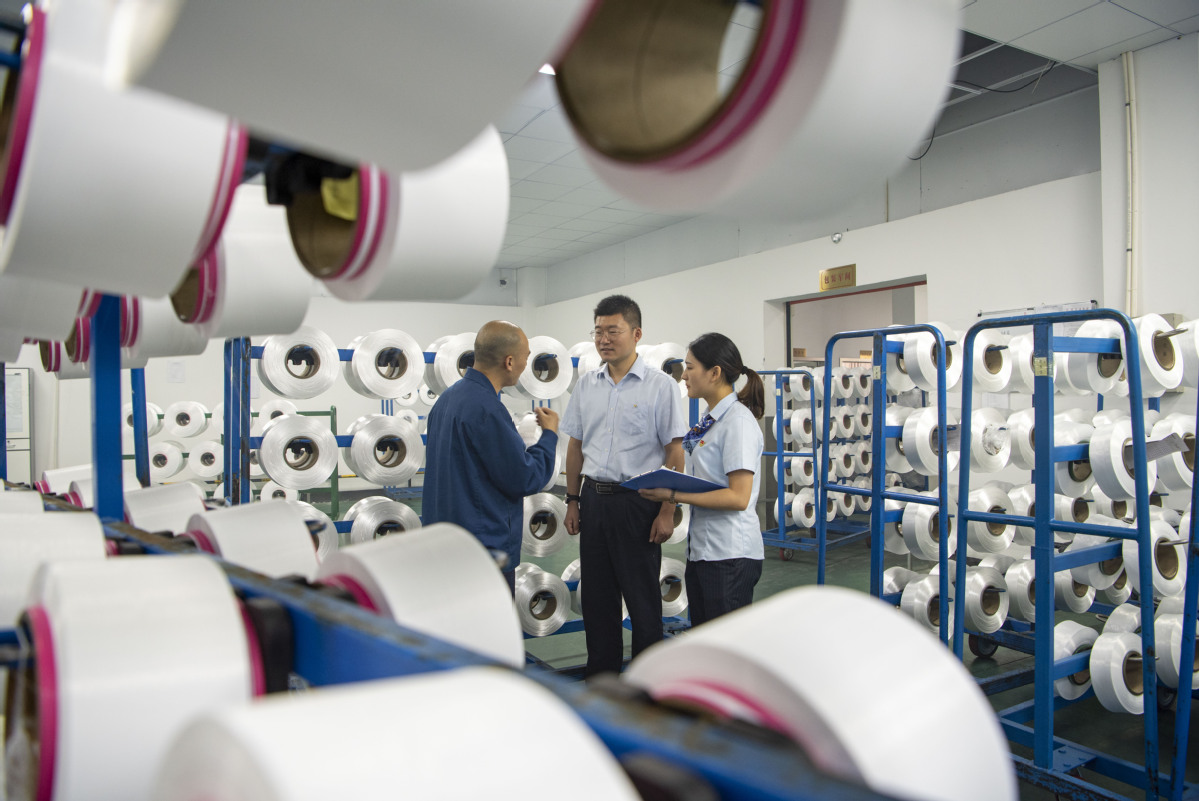Antitrust efforts to protect private companies


Fairer market order and standardized environment on the rise, survey finds
Most Chinese private enterprises are upbeat about the country's business prospects in the fourth quarter, as China's strengthening antitrust efforts are expected to drive a fair and more competitive market, an official said.
"The country's antitrust efforts are definitely not against innovation and development, let alone being opposed to private enterprises. What recent regulations try to restrain is the destruction of a benign industry ecology," said Xu Lejiang, deputy head of the United Front Work Department of the Communist Party of China Central Committee.
"Such efforts will protect the legitimate rights of the private economy, which mostly consists of small and medium-sized enterprises. They also drive an industry ecology that is good for large and smaller private companies, and in so doing stabilize and optimize the supply and industrial chain as a whole," said Xu, who is also secretary of the Leading Party Members' Group of the All-China Federation of Industry and Commerce, a national body that serves the private sector.
Xu pointed out that based on their survey, private companies witnessed a more fair market order and standardized market environment with the country's antitrust efforts, and they get to know where the red line is, which will help them to improve their compliance management.
The federation's latest survey, of 9,401 private companies, in the second quarter of this year found that the operating condition of private enterprises remained stable as a whole. As of Oct 10, the revenue of three-quarters of private enterprises had risen steadily since the second quarter.
Purchase orders for major products of more than 70 percent of private enterprises soared steadily and the sale prices of main products from 70 percent of private enterprises kept rising. Also, 80 percent of them increased their domestic investment during the period.
As for the fourth quarter, Xu said 78 percent of companies gave market demand a neutral or above expectations rating. Some 83 percent of private companies hold neutral or above expectations for domestic investment, and 65 percent of companies have the same expectations for the import and export businesses.
However, Xu added that 47.37 percent of private enterprises feel rising pressure from the soaring costs in the second quarter, especially from raw material costs, with 54.79 percent of them witnessing inflated raw material costs from the previous month.
"More efforts will be made by the federation to guide private companies and prevent potential risks in the industry. At the same time, the federation will coordinate with relevant departments and local governments to help large enterprises that temporarily experienced liquidity crises to bail themselves out," Xu said.
The private sector has been an indispensable force behind the country's economic development. As of February, China has 144 million active market entities, of which the private economy accounts for 97.25 percent, according to the latest All-China Federation of Industry and Commerce.
Another federation listing report showed that the top 500 private companies booked total revenue of 35.12 trillion yuan ($5.43 trillion) last year, a year-on-year increase of 16.39 percent. Their net profits reached 1.97 trillion yuan and total assets 50.73 trillion yuan, respectively increasing by 41.4 percent and 37.25 percent.
"More efforts will also be made to nurture more 'little giant' companies, or innovative small and medium-sized enterprises, to mold such firms into future champions in bottleneck sectors," Xu said.
According to the Ministry of Industry and Information Technology, private enterprises contribute on average about 50 percent of tax revenue, 60 percent of GDP, 70 percent of technological innovation and 80 percent of urban employment.
Looking to the future, Xu said that many Chinese private enterprises themselves face new challenges and many lack capital, technology, talent and other innovation elements. Their risk prevention and control capabilities also urgently need to be improved and strengthened.
"Therefore, they should seek more breakthroughs in subindustries and certain professional fields and shift from focusing on quality to focusing on quantity. They are also expected to strengthen technological innovation and increase investment in the research and development of cutting-edge technologies," Xu said.



































